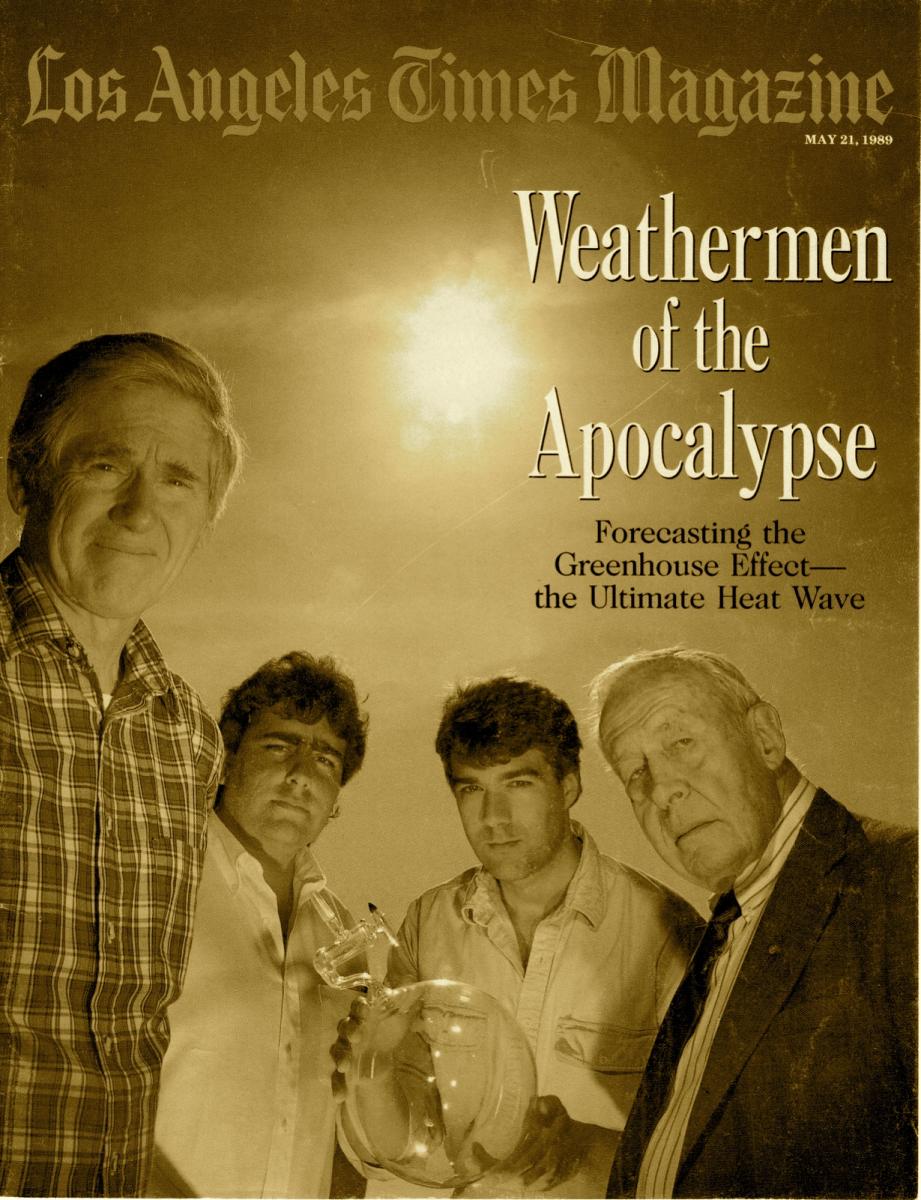A Look Back at Climate Change
As a science writer I always looked for stories about the future, so it’s no surprise that I started covering global warming and climate change during the late 80’s. Recently going through my files I ran across one of those stories, from 1989, that ran on the cover of The Los Angeles Times Sunday magazine.
 What’s interesting now is how clear the science was, even back then--and how relatively uncontroversial the topic seemed. I wrote about the researchers at Scripps Oceanic Laboratory, who were then arguably the leaders in atmospheric research.
What’s interesting now is how clear the science was, even back then--and how relatively uncontroversial the topic seemed. I wrote about the researchers at Scripps Oceanic Laboratory, who were then arguably the leaders in atmospheric research.
The Scripps researchers seemed confident that there was still time to slow or even stop the warming trend, as long as society acted relatively quickly. I think back then, the success in the Seventies of the global community at banning Freon--to prevent atmospheric ozone destruction--was still a recent memory. Of course the world would rally to prevent an even bigger hazard.
And back then, there were no climate change skeptics for me to quote--something I would have done in my normal science-writing practice. Certainly there was no one from the fossil fuel industry to quote: back then, their own researchers were also concerned about global warming.
What strikes me now about the story is its calm innocence, given how politically charged and divisive the issue has become in the United States. Back then, I don’t think anyone on the science side suspected what kind of opposition waited ahead as the fossil fuel industry moved to protect its commercial interests.
Ironically, they learned quickly. Within a couple of years two of the Scripps researchers I profiled in the article were deep into the political thickets. Roger Revelle, sometimes called “the father of global warming”, under dubious circumstances was made co-author of an article that questioned the need for action on the issue. His young assistant, Justin Lancaster, publicly protested that his professor hadn’t been fully aware of the content of the article and that it didn’t reflect his views.
Very quickly, an early group of global warming deniers sued Lancaster. To avoid a lawsuit he couldn’t afford, the young researcher withdrew his statement--although years later, as Revelle’s apparent skepticism was repeatedly cited, he went back on the record.
But perhaps we should have suspected back then just how powerfully the fossil fuel industry would attack the science. It was, after all, much earlier in the century that another writer, Upton Sinclair, observed that "It's hard to get a man to understand a thing when his paycheck depends on his not understanding it."
For anyone interested in a bit of scientific nostalgia, a PDF of the article is here.

